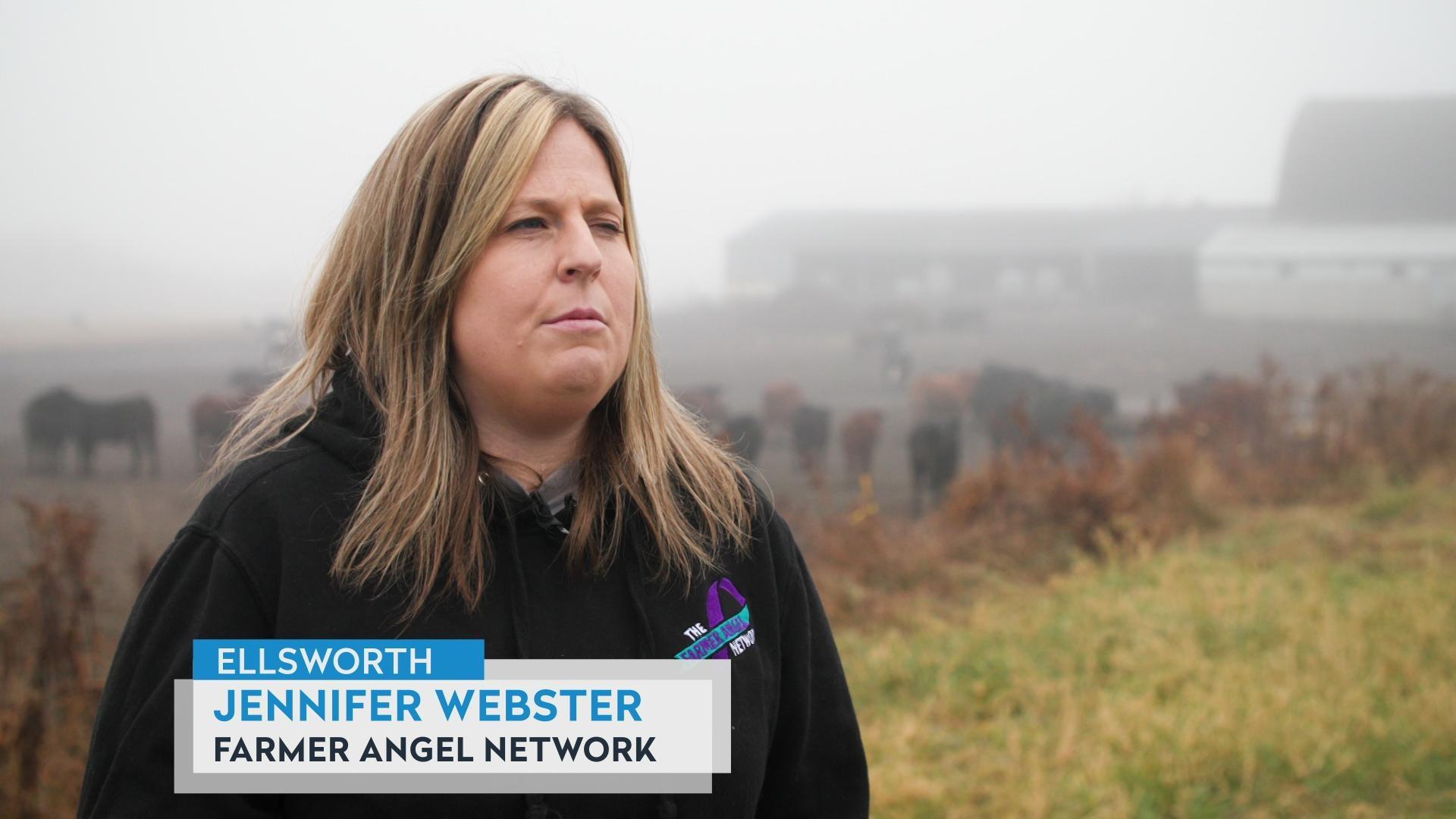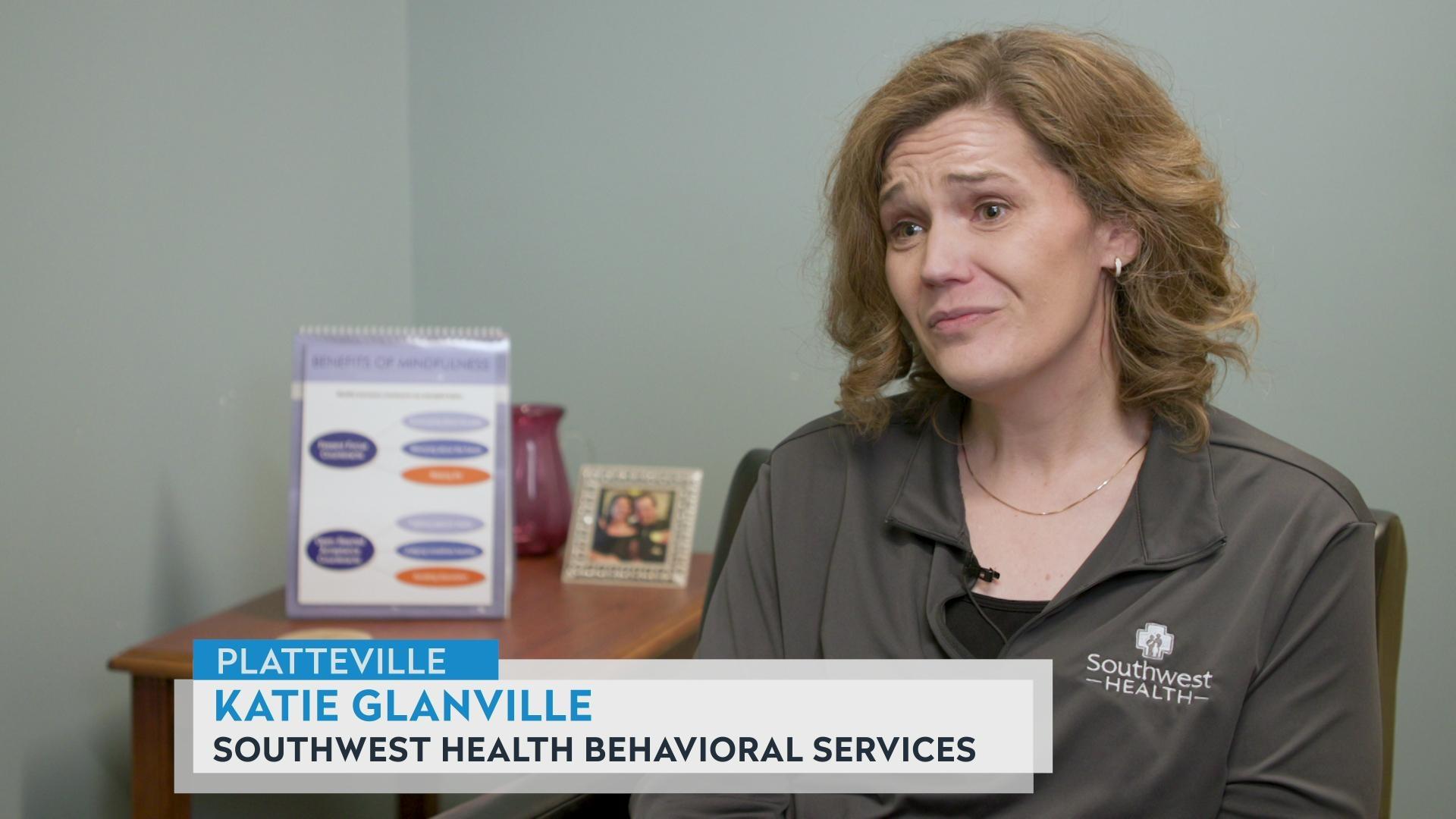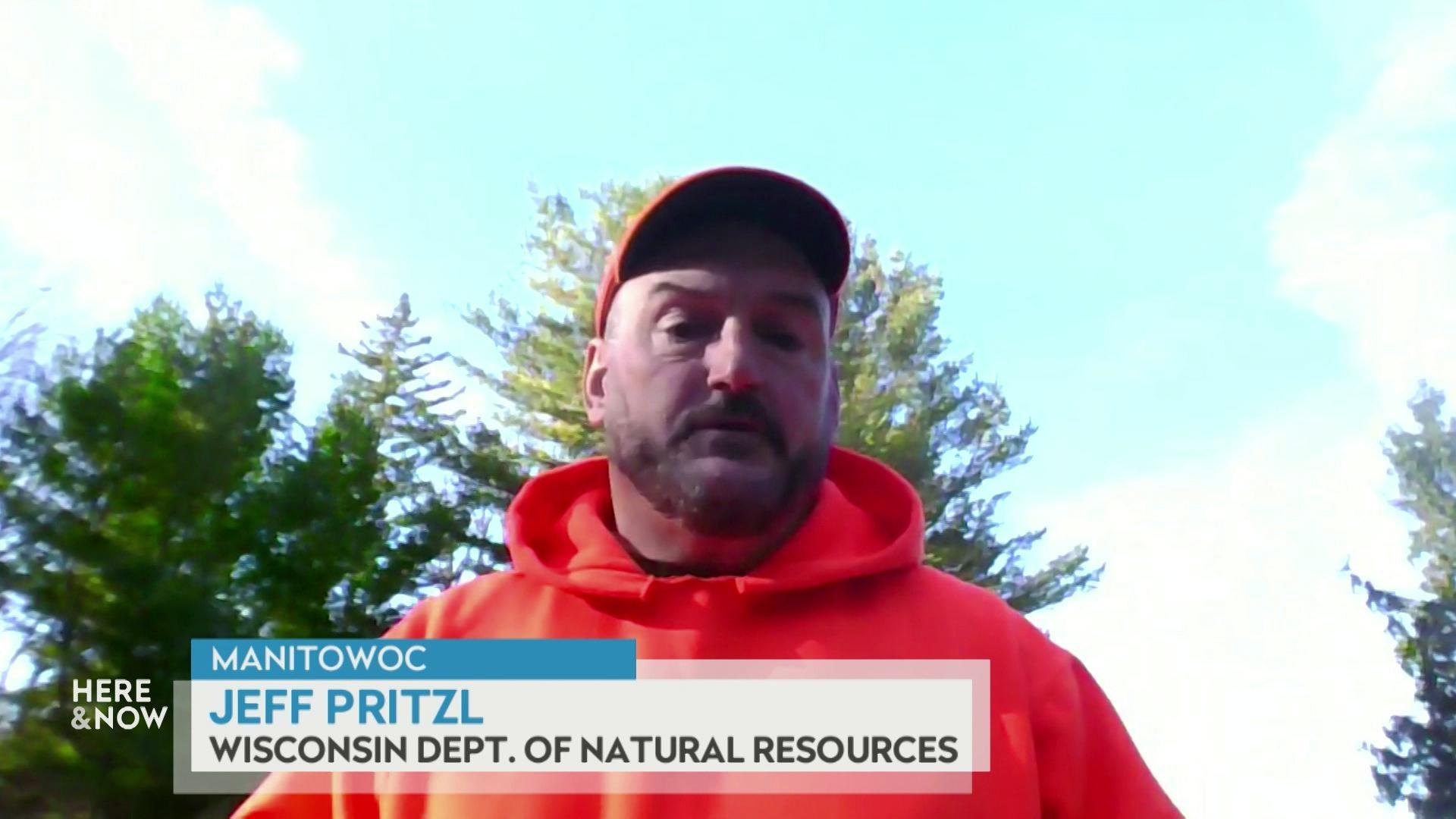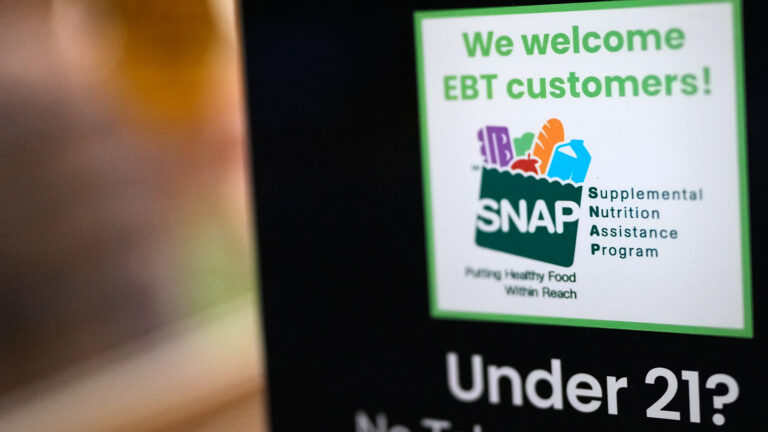US Rep. Derrick Van Orden on 2023 Farm Bill priorities
By Frederica Freyberg | Here & Now
June 23, 2023
U.S. Rep. Derrick Van Orden, R-Prairie du Chien, discusses holding listening sessions and developing proposals related to taxes, food assistance and mental health support for the federal Farm Bill.
VIDEO TRANSCRIPT
Frederica Freyberg:
Congressman, thanks very much for joining us.
Derrick Van Orden:
You're welcome, and I appreciate you having me on.
Frederica Freyberg:
So, you held listening sessions on the 2023 Farm Bill and took constituent input online. What are farmers in your district telling you are priorities for them?
Derrick Van Orden:
Across the district and across the nation, because we've been holding these listing sessions from the Agriculture Committee around the country, Texas, California, Oregon, Florida, New York State, Upstate New York, and we'll be bringing G.T. Thompson to the district, the chairman of Ag Committee, coming up here next month. We hear the same thing really across the board, that input costs are having a devastating effect on our farms. People are concerned about being able to turn their farms over to the next generation of farmers. And we have to remember that if we want family farms, that's what that means, passing a farm from one generation to the next. They're very concerned about labor also. Those are really kind of the top three things.
Frederica Freyberg:
Yeah, so, when you say input costs, you mean the cost of growing the things that farmers are producing.
Derrick Van Orden:
You bet. Diesel, fertilizer, seed, and then if you wanna count equipment costs in there also, because spare parts are going up a tremendous amount across the board. One of the things that we have to do is get back to being energy independent. People don't realize that the vast majority of nitrogen for fertilizer comes from natural gas, so when we cut natural gas production we're actually gonna cause scarcity, which will increase the cost of fertilizer. Everything from getting a seed to a farm to getting that seed in the ground and then fostering that, getting it out of the ground, getting it to a processing facility and then to a market is all predicated on diesel fuel. So, when diesel fuel is high, the price is high, the cost for our foods are gonna be higher. They just have to because that is a major input cost for our farmers.
Frederica Freyberg:
So, how would you like to see funding in the Farm Bill address the need for farm workers in Wisconsin?
Derrick Van Orden:
Well, I've just been appointed as one of eight Republicans on a bipartisan agriculture labor board, committee, rather, it's underneath the the Agriculture Committee. We haven't had our first meeting yet, but that's what we're gonna address. The H-2A visa process is designed for seasonal workers, but you can't tell a cow to quit milking during the winter. And we've got almond growers and other specialty crop growers around the country who are harvesting year round. I was down at El Paso actually looking at the border, and they get seven to nine cuttings of alfalfa a year. So, the system is not designed appropriately to make sure that we have year-round agricultural labor.
Frederica Freyberg:
What about any kind of funding for protecting family farms? You were talking about farmers worried about being able to pass their farms down generationally.
Derrick Van Orden:
Well, unfortunately that's tax, the tax laws. They're designed to... Well, I don't think a lot of people truly understand agriculture. A farm is an economic unit. It's comprised of three things: land, labor, and iron, iron being combines and tractors and whatnot. And one of those three gets out of whack, the system collapses, the farm does, the economic unit, and you lose the farm. So, when we're taxing one generation to the next, farms are generally cash poor so they have to sell land or iron, which upsets the apple cart there and they wind up losing their farms. It's tragic, so that needs to be addressed in the Ways and Means Committee, and I hope that the Biden administration will get on board with making sure that these onerous tax laws from passing one farm from one family member to the other, that we take care of those effectively.
Frederica Freyberg:
By far the largest expenditure in the Farm Bill is the Nutrition Assistance Program for low income households, about 80%, I understand, of a potentially trillion dollar 2023 Farm Bill. What changes would you like to see around food stamps, or food share as we call it here in Wisconsin?
Derrick Van Orden:
Well, it's actually 81%, and I volunteered to be on the subcommittee for SNAP because I was raised in abject rural poverty by a single mother, and we were on what was then food stamps. It's no longer, you don't have a stamp anymore, it's the SNAP program. So, I used those programs as a child, and we had subsidized school lunches. I had government cheese. When I was being shot at as an active duty Navy SEAL, my wife and I used WIC to help feed my children. So, I wanted to be on the SNAP committee because people on both sides of the aisle need to understand that these are vital programs and they're designed to be a hand up, not a handout, because you want people to get back on their feet again, and there are times when Americans need this assistance. So, one of the things that we got through that the Biden administration said was a non-starter was the work requirements, and who those apply to are able-bodied adults without dependents. And 79.5% of Wisconsinites voted for work requirements in April. 80% of the 3rd congressional district voted for those work requirements. And I think it's really important that people understand the dignity of labor. I remember getting my first paycheck from a guy named Raleigh Bevins. He handed it to me, and I was so proud because I knew that I'd earned that money. And that started a system for me of working and being more independent. So, when people are able to support themselves and their families, it gives you a great feeling of pride. And once you can take pride in your work, you tend to do better throughout society. And that's what we're trying to do, make sure that people are in a place where they can become productive members of society. And that's why I wanted to be on the SNAP committee to see how we can shape the policies to make the most sense with that.
Frederica Freyberg:
Well, one thing I don't understand is that already the new debt ceiling law imposes new work requirements for older people who get food share or the supplemental nutrition assistance. Would both things be happening at the same time, then?
Derrick Van Orden:
No, they'll have to be rectified. The law has to be congruent. And raising the limit. I'm 53 years old, I work probably, I don't know, 16 hours a day when I'm here in Washington, DC, and we're talking about 20 hours a week, 20 hours a week either working, looking for work, seeking job training, or being educated for a job. That's 20 hours a week. And as I said, 79.5% of Wisconsinites and 80% of the 3rd congressional district voted for work requirements, so we are not out of line with the thinking of the vast majority of the state of Wisconsin. I won by 3.8 points. I didn't win by 80%. That means a lot of Democrats in my district want these work requirements, and I was sent here to Washington, DC to represent them along with the Republicans that voted for me.
Frederica Freyberg:
Is the inference there that people who might be accepting food share dollars to buy food because they're low income are just lazy?
Derrick Van Orden:
No, and I really think that's wholly inappropriate that you'd even ask me that question. That is just silly. I told you I grew up on food stamps, and my mother was not lazy by any means, so that is a dog whistle, unfortunately, that liberal media uses to try to entice a Republican into saying something stupid. I volunteered to be on the SNAP program on purpose because these programs are valuable. And my mother, Carol Ann Mulligan, was not lazy. She was five foot two and harder than woodpecker lips, and she worked as much as she could to take care of me and my brother, so I don't appreciate that question.
Frederica Freyberg:
I would suggest, sir, that I am not saying that you or your mother or your family were lazy, but that is something that gubernatorial candidate Tim Michaels spoke to in his campaign running for governor.
Derrick Van Orden:
It's 2023, ma'am, and I'm a member of the United States Congress. I didn't run for governor.
Frederica Freyberg:
Across the aisle, Senator Tammy Baldwin would like to see renewed funding for farmer mental health assistance. How needed is that from your perspective?
Derrick Van Orden:
The number one facility in each one of my 19 counties that houses people in mental health crises are our county jails. And that's terrible. It's not just our farmers, it's across the board. The mental health issues that have spiked after these incredibly horrific instances of shutting people out of everything during COVID, they've just skyrocketed, and we need to get money for mental health. How that looks, you know, I'm not quite sure, but I went over to Mark Pocan's office to speak to him about this. Now, Mark Pocan and I disagreed probably 98% of the time, and that means we agree 2% of the time. And people sent me to Washington, DC to find that 2% of the time that I agree with people, and I have actively sought out my Democrat colleagues to solve some of these very, very important issues. We cannot have folks out on the streets that are having mental health crises. We have to give them treatment. It's a must. And how that looks, honestly, legislatively, from a policy perspective, I'm not quite sure how to crack that nut yet. But it's something that we're looking at actively because it's a necessity for our society to function, making sure that folks who need mental health care, farmers and non-farmers, get it. And our police officers. Our police officers have a much higher rate of suicide because they've been ostracized by the left. They want to defund the police, and they made being a police officer seem like it is not an honorable job. But these people protect us as we sleep. And I think that is honorable.
Frederica Freyberg:
Congressman Derrick Van Orden, thanks very much.
Derrick Van Orden:
Well, you're welcome. Have a good day, thanks.
Frederica Freyberg:
You too.
 Passport
Passport











Follow Us